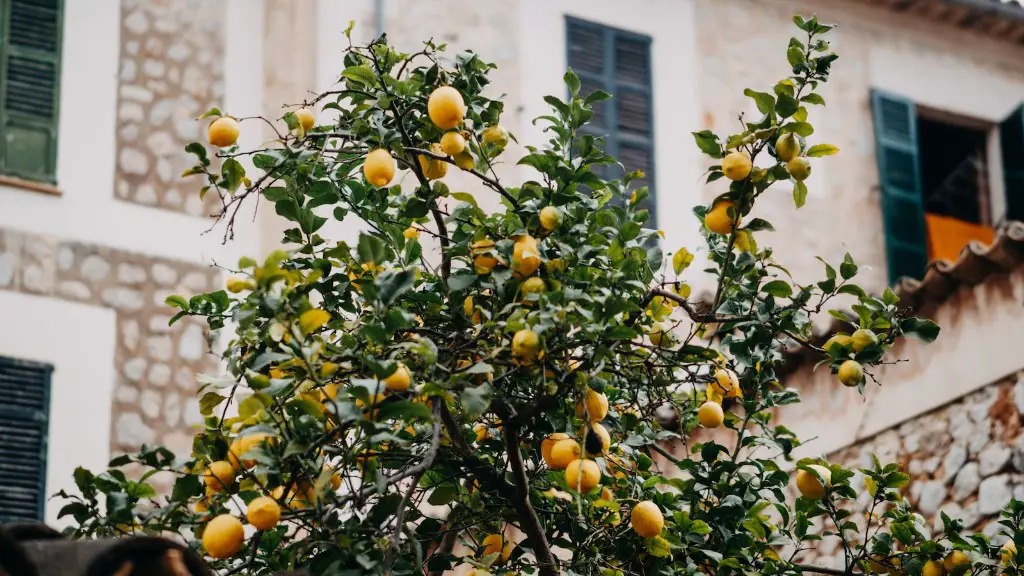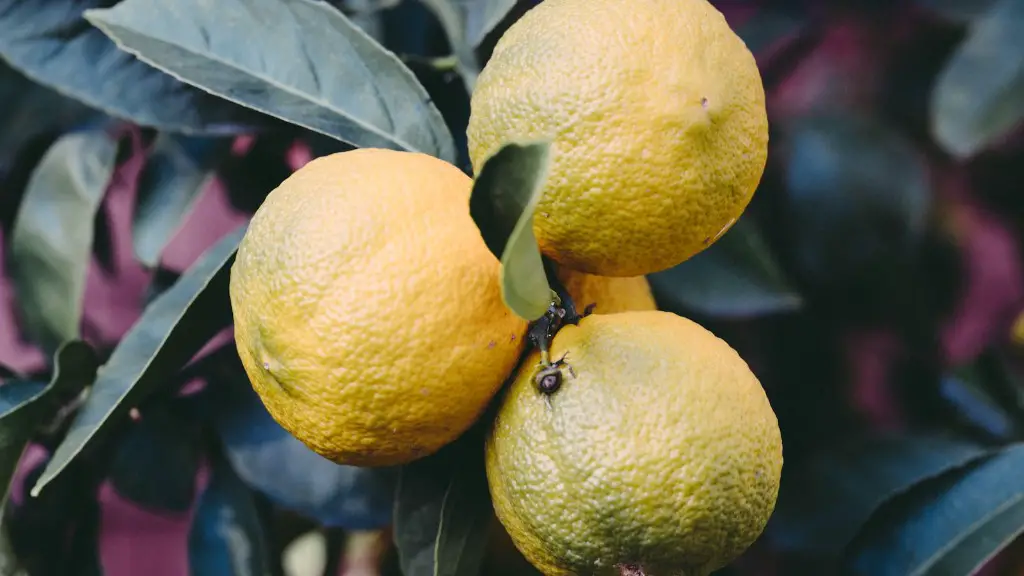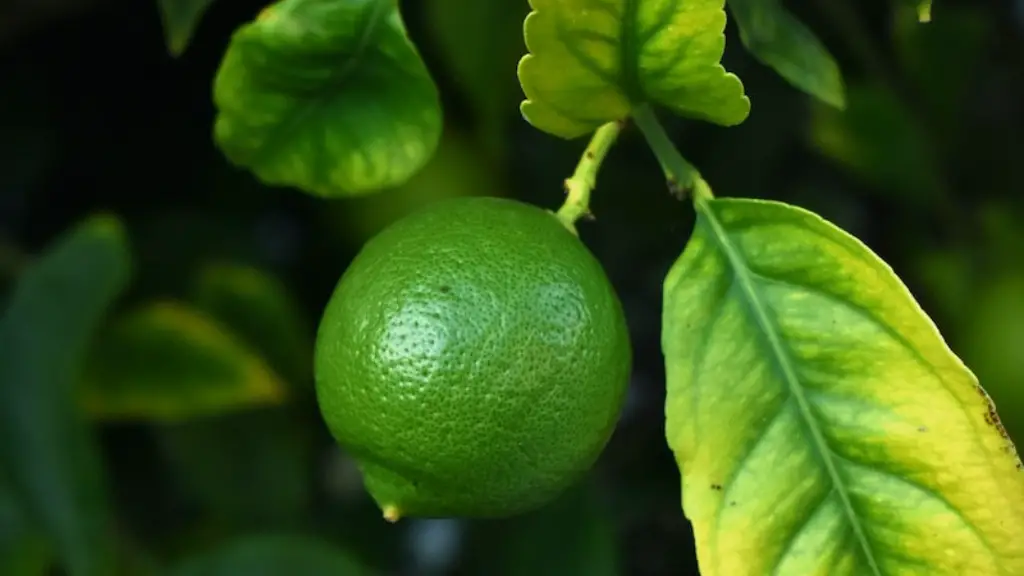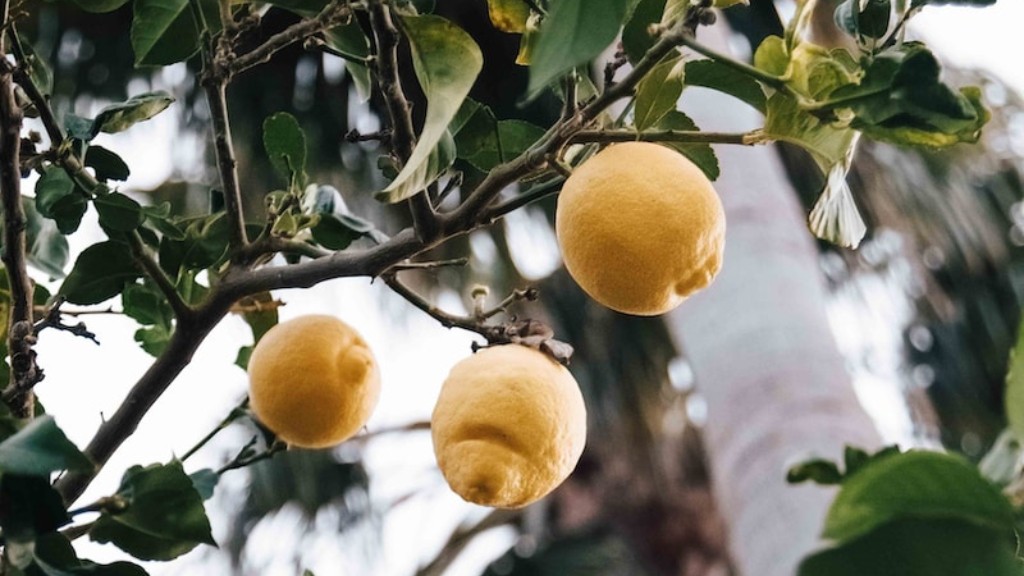When it comes to lemon trees, it’s important to know the best type to choose. The most common lemon tree varieties are the Eureka and Lisbon, which are both favored for their sweetly tart flavor and bright yellow fruit. Other varieties of lemon trees include the Meyer, which is a cross between a lemon and mandarin, and the Bearss, which is an especially hardy variety that produces larger fruits. Given the wide range of options available, it can be difficult to decide which one is right for your needs. Here are some things to keep in mind when selecting a lemon tree.
First and foremost, consider the purpose you’ll be using the lemon tree for. If you’re looking for a culinary-grade lemon tree, then the Eureka and Lisbon are recommended, as they are considered the best for food. The Meyer variety is great for desserts and beverages. For landscaping purposes, the Bearss is a great choice, as it is an attractive and hardy tree for any climate and soil type.
When looking at the different varieties of lemon trees, take into account the size and shape of the fruit. Eureka and Lisbon are considered the most flavorful lemons and grow in small to medium size, while Meyer and Bearss produce larger fruit. However, the Meyer lemons tend to be sweeter than the others. Additionally, the Meyer is much more cold-resistant and is a great choice for cool climates.
When considering the size of your lemon tree, bear in mind the amount of space available. Eureka and Lisbon trees get quite tall, getting up to fifteen feet or more in height. On the other hand, Meyer and Bearss trees reach a maximum of ten to twelve feet in height. If space is limited, the Meyer and Bearss trees would be a better option.
In terms of maintenance, all varieties of lemon trees require pruning in order to keep them healthy and reduce the risk of disease. Meyer and Bearss trees, however, require a bit less pruning and maintenance than the Lisbon and Eureka varieties. Furthermore, the Meyer is also a more pest-resistant tree.
Finally, consider the hardiness of the tree. Both Eureka and Lisbon lemons can endure temperatures as low as 20°F, while the Meyer variety can withstand temperatures as low as 10°F – making it more resistant to cold. The Bearss tree is especially hardy and can tolerate drought and windy conditions.
Ultimately, there is no single ‘best’ type of lemon tree – it depends on individual needs and preferences. However, by keeping the information above in mind, you can make an informed decision and choose the best one for you.
Growing Lemon Trees
Gaining the knowledge needed to successfully grow a lemon tree is a critical part of the process. While all varieties of lemon trees can be grown indoors and outdoors, there are specifics that should be taken into account. Indoor lemon trees require a location where they will receive ample light, such as near a window facing south or east, and must be kept in temperatures above 50°F. They should also be in a large enough pot to accommodate their root system and get adequate drainage. Outdoors, a sunny spot with well-drained soil is ideal for lemon trees.
While citrus trees require more attention and work than other varieties, they do produce a beautiful, fragrant blossom that gives way to vibrant, nutritious fruit. It is therefore essential to take the necessary steps to ensure the adequate fertility and nutrition of your lemon tree. For example, lemon trees prefer soil that is slightly acidic or neutral in pH and will benefit from a nitrogen-rich fertilizer once or twice a year. Additionally, keeping leaves and debris cleaned up around the base of the tree is also important.
Moreover, it is crucial to understand and protect your lemon tree from common pests and diseases. The most prevalent pest attacking lemon trees is the wax scale, while common diseases are often caused by fungal infestations and viral infections. While it may be difficult to diagnose the exact cause, there are certain measures that can be taken to reduce the risk of pests and diseases in the first place, such as proper fertilization, irrigation, and pruning. Additionally, insecticides and fungicides can also be used to treat specific problems.
Finally, lemon trees require proper pruning to help maintain a healthy shape and size. Pruning should be done in late winter to early spring, when the lemon tree is relatively inactive. Pruning should be focused on cutting back areas of the tree that are too long and unruly, as well as cutting out diseased or dead branches. With regular pruning and the right care, your lemon tree can produce delicious fruits for years to come.
Harvesting and Storing Lemons
Once your lemon tree is mature and producing fruit, be sure to check it frequently for ripeness. Lemons are ripe when their peel is yellow or a yellow-orange color, and when it will easily pull away from the branch. Once you determine the right time to pick the fruit, be sure to use foliage clippers or a hand pruners. Cut at a slight angle to the branch, and leave the stem, as this will help prevent rot.
After harvesting, it is important to handle lemons with care to avoid bruising or bursting the fruit. Lemons can be stored at room temperature for a few days, but to keep them longer, wrap them individually in plastic and store them in the refrigerator. Lemons will last up to two-three weeks in a standard refrigerator. For longer storage, lemons can also be frozen, though their texture may change after thawing.
It is also possible to store lemons for use throughout the year. Lemons can be preserved by curing in a brine solution or dehydrating them. To cure lemons, simply cut them in half and place them in a shallow bowl of salted water. Cover the bowl and let the lemons sit in the refrigerator for a few days. For dehydrating, preheat an oven to between 140°F and 150°F before spreading the lemon slices in a single layer on a baking sheet. Place the baking sheet in the oven and let the slices dry for up to 6 hours.
Preserving lemons also allows for the zest and juice to be used for various recipes, such as marinades, glazes, and sauces. Moreover, lemon peel can also be used in cooking or to make natural cleaners and air fresheners. Finally, if you don’t want to cook with them, whole preserved lemons can also make a great decoration or natural air freshener, offering a pop of color and a pleasant citrus aroma anywhere.
Preparing Lemons for Eating
Once you have picked and gathered your lemons, it is crucial to properly prepare them, as mishandling can introduce bacteria and cause food poisoning. Start by washing them with cold water and a clean sponge or brush to remove any dirt, dust, or other contaminants. After washing and drying, use a vegetable peeler to remove the skin, as this will help eliminate any pesticides that may still be on the fruit.
Be sure to store any cut lemons properly. Refrigerate any unused lemons, either in a zipper-lock bag with the air removed or covered with a damp paper towel. When using a juicer to make lemon juice, keep the juicer clean and use a separate one for lemons and other acidic fruits. Finally, when using lemons for a recipe, it is recommended to use them within 24 hours, as their taste will diminish over time.
Health Benefits of Lemons
Lemons are a great source of vitamins, minerals, and other natural compounds that offer multiple health benefits. Rich in vitamin C, lemons can help the body maintain healthy skin and bones, as well as build up the body’s natural immunity against colds and other illnesses. The fiber in lemons also aids in digestion, while the potassium helps to regulate blood pressure and maintain heart health. Moreover, the citric acid found in lemons may help reduce inflammation and oxidative stress in the body.
In addition to boosting immunity and providing essential vitamins, lemon juice can also help reduce feelings of nausea and heartburn. The juice is naturally acidic and helps balance out any bacteria in the stomach that can cause discomfort. Lemon juice is also a home remedy often used to treat sore throat, as its antibacterial and anti-inflammatory properties can help soothe the throat and clear out any mucous. It also can help flush out toxins from the body, aiding in weight loss.
Finally, lemons offer numerous benefits for the skin. Not only is lemon juice known to treat acne, but its natural astringent properties make it great for shrinking pores. Lemon juice can also help lighten skin and reduce the appearance of dark spots and other discolorations. Furthermore, combining the juice of a lemon with honey can create a face mask that washes away dead skin cells, resulting in a brighter complexion.
Conclusion
Choosing the right variety of lemon tree is an important decision, and one that should be taken into careful consideration. With knowledge and proper care, you can keep your lemon tree healthy and producing delicious fruit for years to come. And with the many health benefits of lemons, you can reap all the rewards of growing your own citrus tree.




